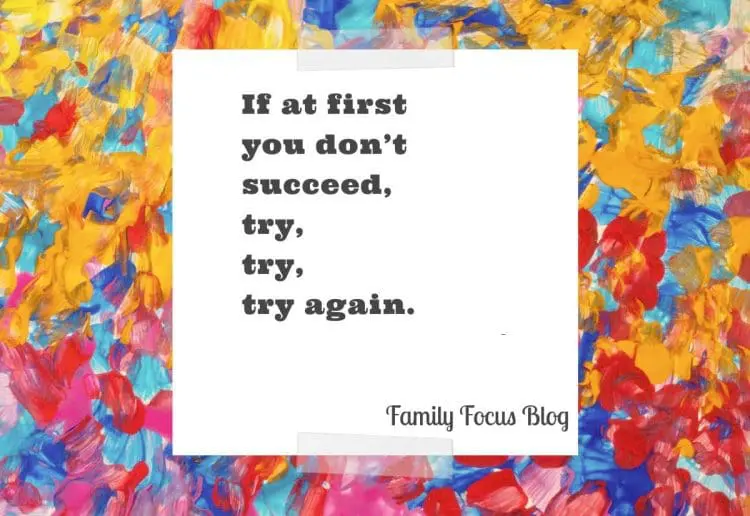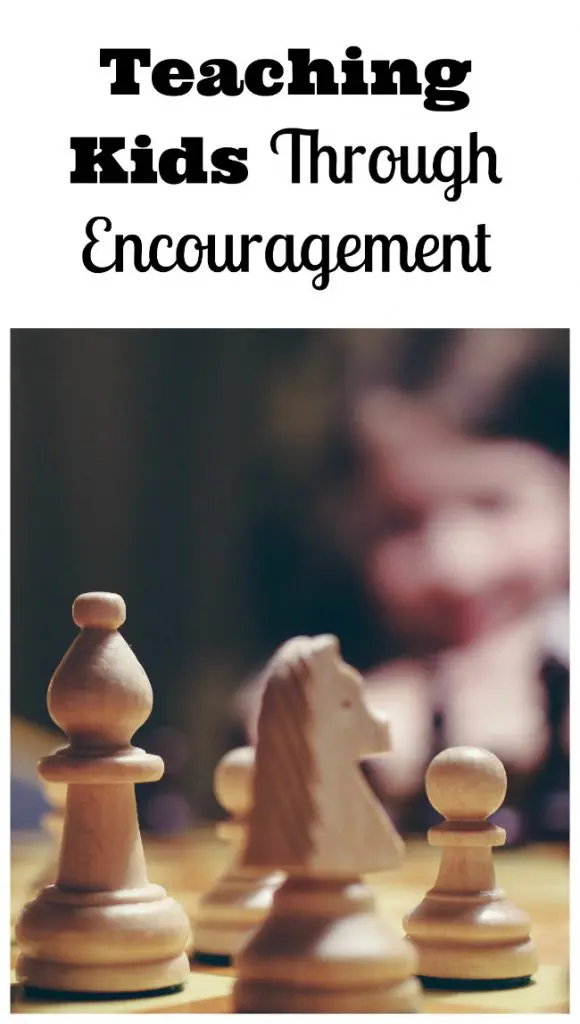In most cases, children naturally want to please and so they tend to be cooperative. I expect my kids to be cooperative with my reasonable requests. I treat them as though they will be, and I show shocked disappointment when they let me down, because frankly, I am shocked. A big part of why my kids are so cooperative is that I have always used encouragement as a tool. When I am teaching them something or explaining to them why we do something, I cheer them on. The idea of using words of encouragement for kids is a simple concept and yet it can be hard for me to put it into words. That is why I am happy to welcome two experts on the subject today. They share very eloquently the “why” and the “how to” of teaching kids through encouragement as well as some effective strategies.
Teaching Kids Through Words Of Encouragement
Award-winning family research psychologists Marion Forgatch and Gerald Patterson have just published a fabulous new parenting book- Raising Cooperative Kids (Amazon affiliate link). Developed through forty years of practice and tested in clinical studies, their techniques will show parents how to create a happy family and raise kids that cooperate and reach goals. Today I am very pleased to share an excerpt from the book with you.
Adapted, and reprinted with permission from Conari Press an imprint of Red Wheel/Weiser, RAISING COOPERATIVE KIDS by Marion Forgatch, PhD, Gerald Patterson, PhD, and Tim Friend is available wherever books and ebooks are sold or directly from the publisher at www.redwheelweiser.com or 800-423-7087.
Raising Cooperative Kids – Excerpt from Ch. 3 – “Accentuate the Positive”
Example Words Of Encouragement
Have you ever tried to keep a smile plastered on your face when you are stressed out, tired, and angry inside? Then you know how hard it can be sometimes to accentuate the positive. If you are stressed out and with your children, you have to be extra careful not to let your irritability wipe out the positive balance you’ve accrued in your relationship account. You know how that goes. Your son does something wrong; you notice his mistake and correct him: “No. Don’t do it that way! I told you to fold the towels into thirds like this. How hard can that be? “The positive approach goes something like this: “You’re good at folding towels in half. Let me show you a new way that makes it super easy to stack them in the linen closet.”
Encouragement Vs. Criticism
Teaching through encouragement builds cooperation. Encouragement—“Good job! That’s how to do it!”—promotes mastery and self-confidence in your children. Children’s positive feelings are infectious and will spread throughout the family. We have shown this to be true in our studies for children of all ages. On the other hand, criticism, even when it’s constructive, hurts. Most human beings react to pain by striking back, withdrawing, or resisting. Think of your own experiences with criticism. The comments you recall as you’re drifting off to sleep are often the negative ones that point out your mistakes or flaws.
Negative comments include criticism, disagreements, and correction. Of course, we have to correct our children from time to time; and yes, we know that disagreements lead to new perspectives. But when it comes to teaching children, it’s best to avoid criticism and save disagreements for other times.
People Learn Best With Words Of Encouragement
It seems to be a universal principle that we learn best when someone sets us up to succeed and recognizes our progress along the way. When you use encouragement to teach your children, they approach new experiences with a sense of excitement. Whether you realize it or not, you have been using encouragement to teach your children already. Remember when they were tiny tots learning to walk? You held their hands for their first steps. You stood right at their side as they started walking on their own. And they knew just how proud you were because you showered them with smiles and praise. It was easy then.
You also found it easy to teach your children language. When they were babies, you played sound games with them, helping them build sounds into words and words into sentences. Using language is one of the most important human activities, and parents are the primary teachers for helping children form this foundational skill. You have shaped the way your children speak and the things they talk about through daily conversation. Did you even notice how often you accentuated the positive?
Depending on their age, you may have taught your children toileting, getting dressed, brushing their teeth, and table manners. Next, you introduced more complicated skills, like playing games, washing dishes, and doing homework. For most parents, teaching complex skills is more difficult because they involve many steps, present different challenges for each child, and require attention and patience to achieve. Children’s success depends on their parents’ teaching skills and their ability to stay involved.
Tokens And Incentive Charts
We have developed and tested two main approaches to teaching through encouragement that work well—tokens and incentive charts. Both depend on your active support for taking small steps on the path to reaching a goal. Tokens are effective for frequently occurring simple behaviors like following directions. Incentive charts help children learn daily routines like going to bed and complex skills like completing a chore. Both approaches involve setting children up for success, encouraging small steps along the way, and noticing and rewarding good behavior. In this way, parents shine the light on what they want to grow. We call this “learning while earning.” Here is the basic technique for teaching through encouragement.
Strategies for Teaching Through Encouragement
- Identify a goal behavior or skill to develop.
- Break the goal into achievable steps.
- Clearly describe each step.
- Tailor steps to the child’s abilities.
- Notice and encourage the child’s efforts.
- Identify stumbling blocks, then break that step into smaller steps.
- As the child achieves mastery, increase the challenge.
- Reinforce efforts.
- Celebrate accomplishments.
Thanks to authors Marion Forgatch and Gerald Patterson for sharing with us a sneak at their parenting book- Raising Cooperative Kids. It is filled with useful tips and helps your to get a more objective perspective in many parenting situations.

Encouraging Quotes For Kids
“If at first you don’t succeed, try, try, try again.” -A proverb my grandmother always told me.
“You have brains in your head. You have feet in your shoes. You can steer yourself any direction you choose. You’re on your own. And you know what you know. And YOU are the one who’ll decide where to go.” – Dr. Seuss
“You’re braver than you believe, stronger than you seem, and smarter than you think.” – Christopher Robin (by A. A. Milne)
Any of these encouraging quotes for kids would be great handwritten on a post it note or into a card and given to them when they are struggling. These would be great encouraging notes for kids to know you respect their effort and you believe in them.
Conclusion
I believe in teaching kids through encouragement because I believe it is the kindest and most effective method. I do find that it comes most easily when I am not stressed out myself so you might want to try some mindfulness exercises as well. We are all more cooperative when we feel like someone is rooting for us and trying to help us succeed rather pointing out our every error. Give words of encouragement a try and see if you notice improved results!
At any age—even from a young age—we grow stronger when we choose to embrace challenges rather than run from them. The best ways to move forward often begin with just a little bit of courage and a whole lot of faith. Positive reinforcement, rooted in love and encouragement, helps quiet the inner critic and awakens our true inner self. Keep doing the good work, trusting that God’s plan unfolds at the right time. Fill your mind with positive things and your heart with truth, remembering Bible verses that remind us of our worth and purpose in Jesus Christ. You are never alone on this journey, and brighter days are always ahead.
Related Posts:
The Ticket to Fun Cleaning- Chore Cards


Katya says
I have to agree with everything in here. Parenthood is an exciting and unique experience. It is both magical and an exercise in extreme patience. Thanks for sharing!